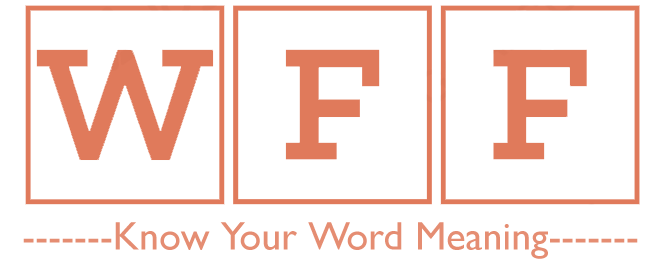Do you know what is the BOD Full Form? The full form of BOD stands for Biochemical Oxygen Demand. The BOD full form is also known as Biological Oxygen Demand. It is related to the dissolved volume of oxygen in the water that is consumed by microorganisms in the biological process of metabolizing organic materials.
Table of Contents
What is the BOD Full Form?
BOD Full Form: Biochemical Oxygen Demand
The level of BOD (Biochemical Oxygen Demand) indicates the volume of organic matter that is included in the specimen. Along with this it also detects the level of contamination in the wastewater. If the BOD level is higher in the water that means the oxygen level in the water is low and the water is polluted.
How to Calculate BOD Level?
The Winkler method is also known as the redox titration and we can use this technique to calculate the BOD level of the sample. The following is the method of calculating the BOD level:
- To calculate the BOD level of the sample we need to first set up the sample for 5 days in the laboratory with the redox titration.
- It is expressed as milligrammes of oxygen per litre of sample. It is typically scored between 1 and 9, with a maximum of 100.
- The BOD (Biochemical Oxygen Demand) is calculated after 5 days of incubation at 20 degrees centigrade and expressed as milligrams of oxygen used per litre of sample.
The following is the formula for calculating the BOD:
BOD Formula:
- BOD = [D(i) – D(f)] / P
Where :
- D(i) = oxygen concentration that is initially dissolved.
- D(f) = final dissolved oxygen concentration
- P = mass fraction of wastewater
Sources of Biochemical Oxygen Demand (BOD)
The following are the BOD Sources:
- Natural Sources: Dead animals, Surface runoff, Soil erosion, and Floating trash all contribute to an increase in BOD.
- Man-made Sources: High concentrations of chemicals like phosphates, and water pollution from food processing factories and paper mills and jute mills increase the BOD of water.
Some BOD Levels in the Sample
Below we were given some BOD levels you can check them here:
| BOD Levels | Sample Quality |
| 1 to 2 | Very clean |
| 3 to 5 | Fair, moderately clean |
| 6 to 9 | Organic material is present, and decomposition is occurring |
| 100 or more | Very poor, organic waste is present |
How BOD Levels can be Reduced?
Reducing BOD levels is easy, especially if you are removing sewage from your home or business. Here we have listed different types of methods that can help reduce the BOD levels of your wastewater:
- pH Control of waste stream
- Reverse Osmosis
- ElectroFlocculation
- Advanced Oxidation Processes (AOP)
- Activated Charcoal Adsorption Method
- Coagulation
- Upflow Anaerobic Sludge Blanket Reactor (UASBR)
- TSS Removal of wastewater
- Ozone Water Treatment
Benefits of Reducing BOD Level
Reducing BOD is a great way to improve water quality and remove harmful pollutants from our ecosystem. Below we will examine some of the many benefits of reducing BOD:
- Protecting Aquatic Life and Ecosystem – When BOD levels are high, water bodies such as algae bloom and which is decrease the oxygen levels, both of which can be harmful to fish, plants and other aquatic life.
- Monetary savings – Water with high BOD levels can be expensive to treat. You can reduce BOD by reducing your treatment cost and by reducing your BOD treatment cost you can save money.
- Water Quality Improvement – Improving the quality of water, and helping to ensure that water is of good quality for human use.
- Reducing water pollution – High levels of BOD can cause water pollution, which can harm the environment. The reduction in BOD can contribute to pollution control for the environment.
Effects of High BOD Levels
High BOD levels can have several negative effects on humans and the environment. Some of these negative effects include:
- Increased growth of bacteria and algae, may cause issues such as unpleasant odours and tastes in drinking water.
- Clogging of pipes and other infrastructure due to the excessive proliferation of bacteria and algae.
- Reduced levels of dissolved oxygen in water bodies, can cause harm to aquatic life and even result in fish kills.
- Eutrophication is a process that occurs when water bodies become over-enriched with nutrients, leading to the death of plant and animal life in the water.

Other full forms of BOD
| Term | Full Form | Category |
| BOD | Biochemical Oxygen Demand | Chemistry |
| BOD | Bordeaux | Airport Code |
| BoD | Board of Directors | Computer and Networking |
| BOD | Biological Oxygen Demand | Chemistry |
| BOD | Biological Organic Deposit | Chemistry |
| BOD | BANGROD | Indian Railway Station |
| BOD | Bookseller On Duty | Job Title |
| BOD | Blogs of Dreamers | Messaging |
| BOD | Body | Messaging |
| BOD | Beginning of Day | Measurement Unit |
| BOD | Better Off Dead | Military and Defence |
| BOD | Barrels of Oil Per Day | Measurement Unit |
| BOD | Bandwidth On Demand | Telecommunication |
| BOD | Beneficial Occupancy Date | Space Science |
| BOD | Brothers of Destruction | Sports |
FAQs- What is the BOD Full Form?
Q.1. what is the full form of BOD?
Ans. The BOD full form is Biochemical Oxygen Demand.
Q.2. What is the BOD Full Form in business?
Ans. In Business, the full form of BOD is a Bill of Distribution.
Q.3. What is the BOD Full Form in management?
Ans. The full form of BOD in management is the Board of Directors/ Backup on Demand.
Thanks for reading What is the BOD Full Form? Bookmark our website Whatisfullform.com to know or read our collection of full forms.


